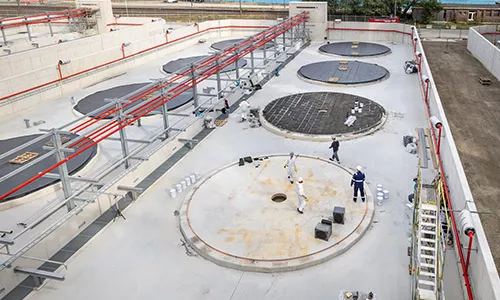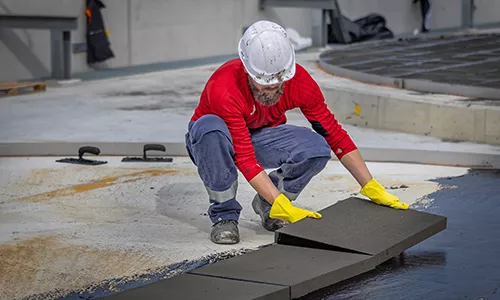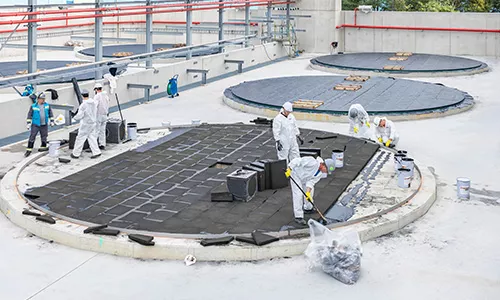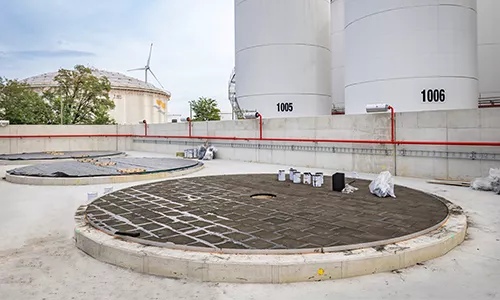Standic Terminal
Antwerp, Belgium

FOAMGLAS® insulation supports efficient storage at new state-of-the-art Standic storage terminal in Antwerp, Belgium
The Dutch tank storage company, Standic, a member of the family-owned Hametha group, has been an established storage provider for over 60 years. Standic is made up of three terminals in the Netherlands and Belgium and offers storage to both large industrial parties as well as niche players and specialists.
Standic opened up a brand-new, highly automated state-of-the-art terminal in the center of the Antwerp ‘chemical hub’ to enable them to serve their chemical customers even better.
The terminal was designed to operate in the most efficient and cost-effective way. Optimizing energy efficiency was one of the key requirements during the design phase.
An example is the recuperation of heat out of the vapours to heat up the tanks. Another example is the choice to add FOAMGLAS® cellular glass insulation between the concrete foundation and the bottom of the tanks to minimize heat loss through the bottom and reduce excessive use of energy for tank heating.
The construction of the new storage terminal took place in a phased approach.
Phase I consisted of adding 95.000 m³ of capacity distributed over 79 tanks with different diameters and a height of 24 meters. The second phase of this expansion project added another 85,000 m³ storage capacity to the terminal with 46 additional tanks.
By the end of 2025, Phase III will be completed and the entire terminal will be operational, and able to offer 249,000 m³ of storage capacity.
Standic was no stranger to specifying FOAMGLAS® cellular glass insulation for heated storage tanks, as cellular glass had already been installed underneath tanks at their Dordrecht terminal about a decade ago.
One of the benefits of specifying a tank base insulation system for the chemical storage tanks is that they can be used for the storage of a wide array of products, heated or cooled. This allows for additional flexibility in operating the terminal’s assets.
Optimizing the terminal’s energy efficiency was always an important design requirement as this would allow them to optimize the use of energy and reduce operating costs in the long term. Additionally, by lowering the energy losses through the tank bottom, the overall carbon emissions of the heated tank could also be reduced contributing towards operating the terminal in the most sustainable way.
The system that was specified for this particular project consisted of a single layer of FOAMGLAS® HLB 1200 high load-bearing insulation blocks in a thickness of 50 mm.
The blocks were glued directly to the concrete foundation with PC® 500 one-component adhesive.
For phase I, Owens Corning supplied FOAMGLAS® High Load-Bearing tank bottom insulation for installation underneath 51 heated tanks to help increase their energy efficiency to lower operating costs. For Phase II, another 46 tanks with diameters up to 12.8 meters and 24 meters in height were insulated with the same FOAMGLAS® tank base insulation system







